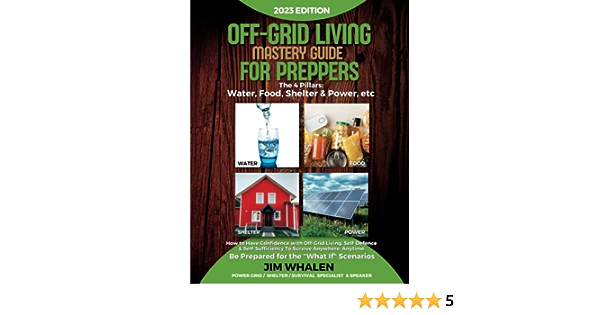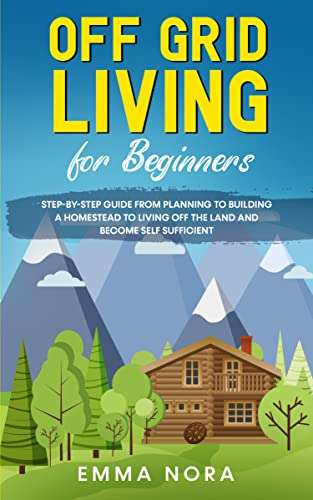Thinking about transitioning to an off-grid lifestyle? This article serves as a guide to help you prepare for the challenges that come with living off the grid. With a focus on mental and physical preparation, as well as financial readiness, this guide provides valuable insights into what it takes to successfully embark on an off-grid journey. From learning self-reliance skills to understanding local laws and regulations, this comprehensive guide covers all the essential aspects to consider when transitioning to an off-grid lifestyle. So, if you’re ready to disconnect from the grid and embrace a self-sustaining lifestyle, read on to learn more about the preparation and challenges involved in this exciting endeavor.
Research and Education
Before making the transition to an off-grid lifestyle, it is important to arm yourself with knowledge and information about what this lifestyle truly entails. One way to do this is by reading and researching about off-grid living. There are numerous books, articles, and online resources available that provide valuable insights and practical tips for those considering this lifestyle choice. By immersing yourself in this literature, you can gain a better understanding of the challenges, rewards, and necessary skills required for successful off-grid living.
In addition to reading, watching videos and documentaries about off-grid lifestyles can also be immensely helpful. These visual mediums offer a glimpse into the lives of individuals and families who have already made the transition and can provide realistic perspectives on what to expect. You can learn about their experiences, the techniques they employ to overcome obstacles, and the lessons they’ve learned along the way. This can help you make more informed decisions about whether this lifestyle is the right fit for you and your loved ones.
Mental Preparation
Transitioning to an off-grid lifestyle is not just a physical change, but also a mental one. It requires resilience, adaptability, and a willingness to face and overcome challenges. Before making the leap, take the time to understand and prepare for the mental demands of off-grid living.
One way to do this is by gaining a solid understanding of the challenges you may face. Off-grid living often involves limited access to resources, unpredictable weather conditions, and a significant amount of self-sufficiency. It is important to mentally prepare yourself for these challenges and develop strategies to cope with them. Knowing what to expect can help you navigate through the tough times and remain focused on your goal of living off-grid.
Mindfulness practices can also be incredibly beneficial for mental well-being in the off-grid lifestyle. Meditation and other mindfulness techniques can help you cultivate a sense of calm, clarity, and gratitude. These practices can provide a sanctuary for your mind amidst the challenges and uncertainties that come with living off-grid. By incorporating these practices into your daily routine, you can cultivate mental strength and resilience that will serve you well on this journey.
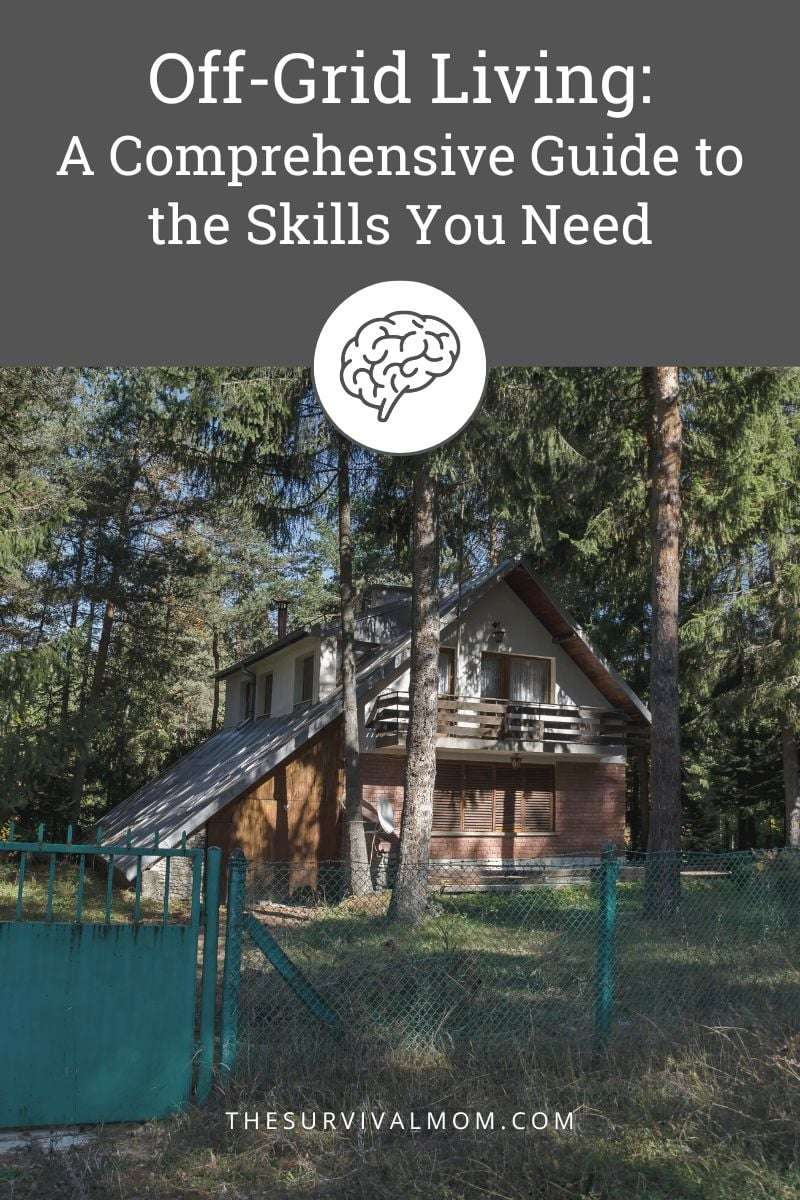
Physical Fitness
Living off-grid often requires physical exertion and stamina. From chopping firewood to tending to a garden, the physical demands of this lifestyle can be significant. Therefore, it is crucial to prioritize physical fitness and prepare your body for the challenges ahead.
Engaging in regular physical exercises and training sessions can help you build strength, endurance, and flexibility. Incorporating activities such as hiking, weightlifting, yoga, and cardio workouts into your routine can help you develop the physical fitness necessary for off-grid living. Not only will this make daily tasks easier, but it will also increase your overall well-being and improve your quality of life in this lifestyle.
Building stamina and strength is particularly important when preparing for off-grid living. This might involve gradually increasing the intensity and duration of your workouts to ensure your body is able to handle the physical demands you will face. By gradually building up your physical fitness, you can reduce the risk of injuries and ensure you have the energy and strength needed to thrive off-grid.
Preparing Family Members
While off-grid living can be an exciting adventure, it is crucial to ensure that your family members are prepared and educated about this lifestyle as well. Involving your loved ones in the preparation process can help foster a sense of unity and ensure that everyone is on the same page.
Take the time to educate your family members about off-grid living. Share the research and resources you have gathered, discuss the challenges and rewards, and answer any questions or concerns they may have. By providing them with a comprehensive understanding of what is involved, you can ensure that everyone is fully informed and can make an informed decision about embarking on this journey together.
In addition to educating them, involve your family members in the preparation process. Assign tasks and responsibilities to each family member based on their interests and strengths. This will not only help them develop the necessary skills for off-grid living but also create a sense of ownership and collaborative spirit within the family.
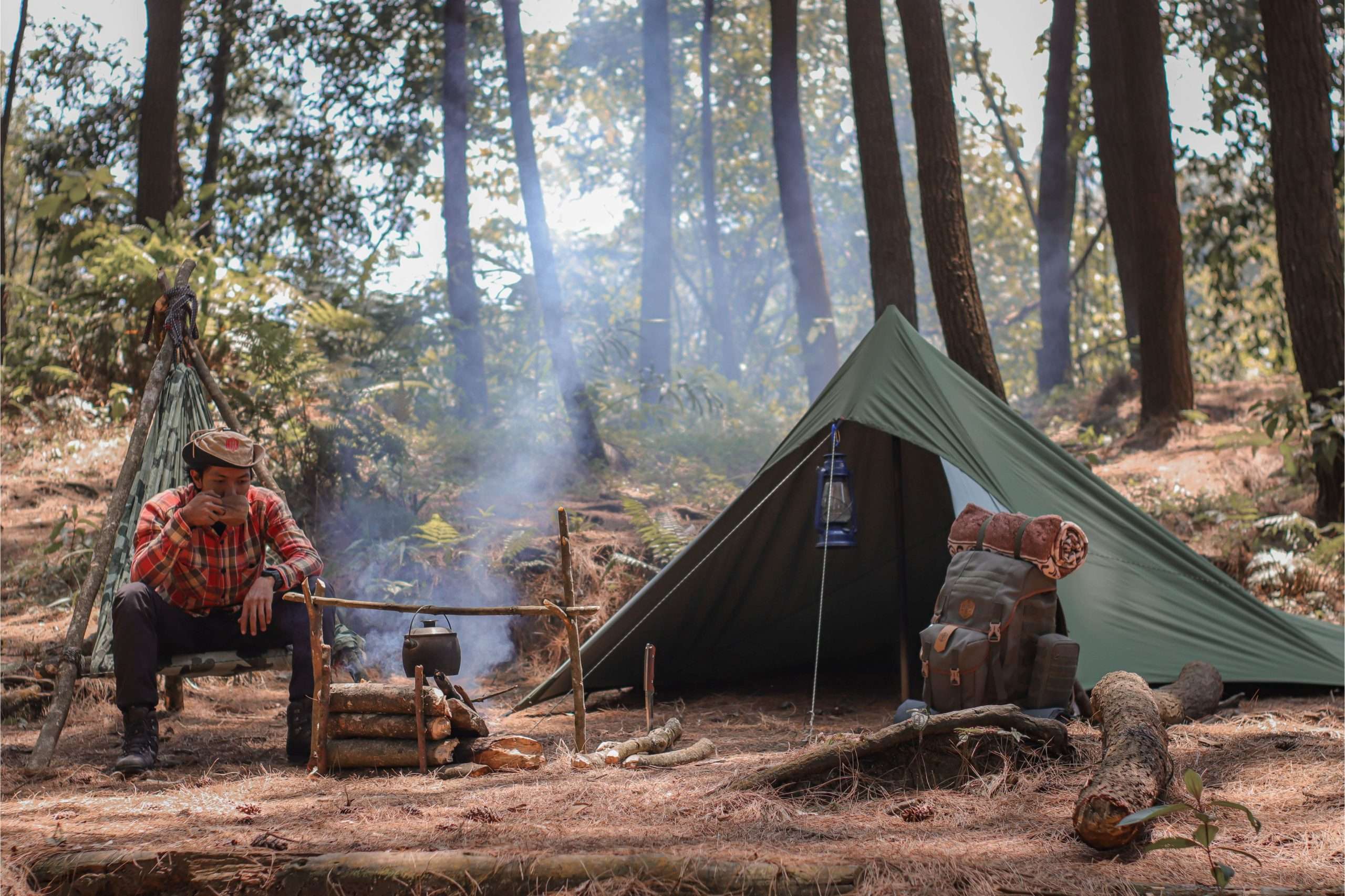
Setting Realistic Expectations
It is important to approach off-grid living with realistic expectations. While the idea of living off the grid may seem idyllic, it is not without its challenges and failures. By understanding and accepting this, you can better navigate the learning curve associated with this lifestyle.
One way to set realistic expectations is by learning from the experiences of others who have already made the transition. Connect with individuals or communities who are living off-grid and listen to their stories. Understand that setbacks, mistakes, and failures are all part of the process. Use these experiences as valuable learning opportunities and a chance to grow and adapt. By approaching off-grid living with a mindset of continuous learning and improvement, you can better embrace the challenges that come your way.
Remember that off-grid living is a journey, and it may take time to fully adjust and find your rhythm. Be patient with yourself and your loved ones as you navigate through this new lifestyle. Celebrate the small victories and learn from any setbacks you encounter. With realistic expectations and a willingness to adapt, you can pave the way for a fulfilling and sustainable off-grid experience.
Financial Preparation
Before embarking on an off-grid lifestyle, it is essential to get your finances in order. Being financially prepared can alleviate stress and provide a solid foundation for your new way of life.
One crucial step in financial preparation is getting out of debt and addressing any existing financial obligations. Off-grid living often requires a degree of self-sufficiency, which means minimizing reliance on external financial resources. Prioritize paying off debts, reducing expenses, and creating a budget that aligns with your off-grid goals.
Saving money and building an emergency fund is also vital for off-grid living. In this lifestyle, unexpected expenses can arise, and having a financial safety net can provide peace of mind. Start by saving a portion of your income regularly and gradually building up an emergency fund. This fund will help you navigate any unexpected challenges or setbacks that may arise as you transition to off-grid living.
It is also essential to evaluate your income sources and explore alternative ways to generate income off-grid. Research various methods such as remote work, freelancing, or starting a small off-grid business. Diversifying your income streams can provide stability and flexibility in this lifestyle.
By being proactive in your financial preparation, you can ensure that you are financially ready to embrace the off-grid lifestyle and all that it entails.
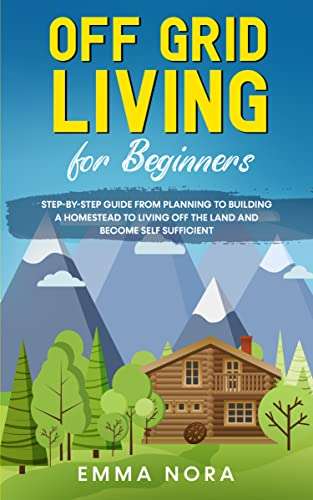
Planning for Shelter and Power Generation
One of the key aspects of off-grid living is planning for adequate shelter and power generation. Without access to traditional utility services, it is essential to research and select appropriate options that align with your off-grid goals and resources.
When it comes to shelter, there are various options to consider depending on your preferences and budget. Research different types of off-grid housing, such as tiny homes, earthships, or yurts, and determine which is the best fit for you and your family. Consider factors such as climate, energy efficiency, and sustainability when making this decision. By choosing a shelter option that aligns with your values and needs, you can create a comfortable and sustainable living space.
Investigating alternative power generation methods is also crucial for off-grid living. Depending on your location and available resources, options such as solar panels, wind turbines, or hydroelectric systems may be viable alternatives to traditional power sources. Research the pros and cons of each method, and consider consulting with experts in the field to determine the most suitable option for your off-grid lifestyle. By harnessing renewable energy sources, you can reduce your environmental impact and achieve greater self-sufficiency.
Remember that careful planning and research are essential when it comes to shelter and power generation. Take the time to explore all available options, seek advice from professionals or experienced off-gridders, and ensure that your choices align with your long-term goals.
Learning Self-Reliance Skills
Embracing self-reliance is at the core of off-grid living. Learning essential skills that promote self-sufficiency can greatly enhance your experience and increase your ability to thrive off-grid.
One important skill to acquire is gardening. Growing your own food not only provides a sustainable source of nourishment but also promotes a deeper connection with the natural world. Research different gardening techniques, such as permaculture or hydroponics, and gain practical experience by starting a garden before transitioning to the off-grid lifestyle. Learning about seed selection, soil health, and crop rotation can help you maximize your harvest and minimize reliance on external food sources.
Foraging and food preservation skills are also valuable in off-grid living. Understanding how to identify edible plants and mushrooms in your local environment can supplement your food supply and add variety to your meals. Additionally, learning preservation methods such as canning, drying, and fermenting can help you extend the shelf life of your produce and reduce waste.
Basic repair and maintenance skills are another essential aspect of self-reliance. Being able to fix common household issues and perform routine maintenance tasks can save you time, money, and reliance on outside help. Educate yourself on basic plumbing, electrical work, carpentry, and other relevant skills. Learning from online tutorials or attending workshops can provide you with the knowledge and confidence to tackle these tasks yourself.
Continuously expanding your self-reliance skill set will not only improve your quality of life off-grid but also foster a greater sense of independence and resourcefulness.
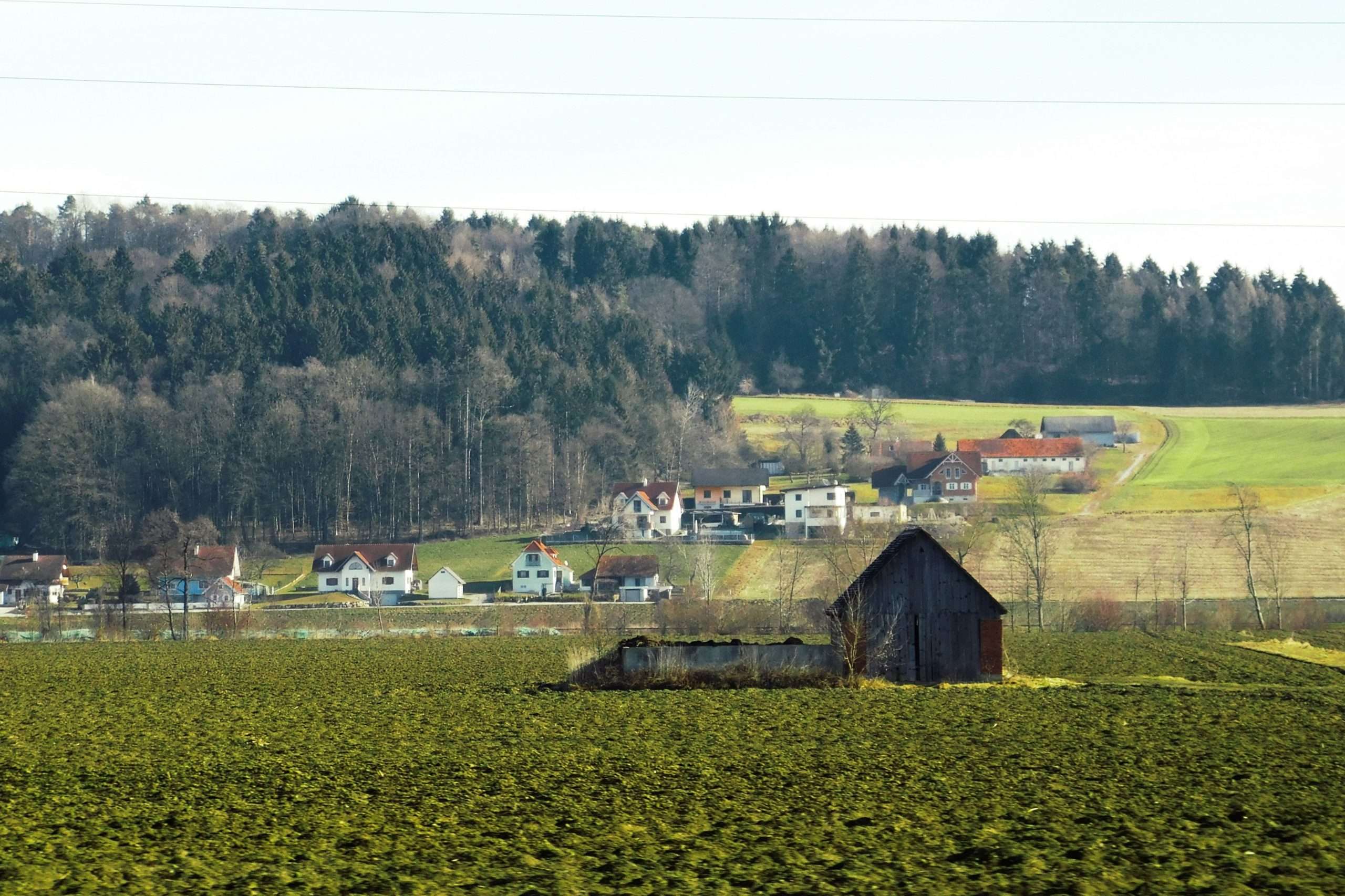
Building Community Connections
Although off-grid living often involves a degree of self-sufficiency, building connections within the off-grid community can be incredibly valuable. Connecting with like-minded individuals provides an opportunity for support, shared experiences, and resource-sharing.
Look for local off-grid communities or online forums where you can connect with individuals who have similar lifestyles and values. Attend gatherings or workshops that focus on off-grid living. These events can not only provide practical knowledge and tips but also opportunities for personal connections.
By building a network within the off-grid community, you can share experiences, learn from others, and find support during challenging times. Additionally, these connections can provide valuable resources, such as shared equipment, expertise, or even trade opportunities. Building a strong community can enhance your off-grid experience and ensure that you have a support system in place.
Understanding Local Laws
Before embracing an off-grid lifestyle, it is essential to research and understand the local laws and regulations that may impact your plans. Zoning and building codes can vary significantly from one region to another, and being in compliance with these regulations is crucial for the success of your off-grid venture.
Research the local regulations and restrictions on off-grid living in your desired location. Be aware of any permitting requirements or building codes that may affect your plans for shelter and power generation. If necessary, consult with local authorities or professionals in the field to ensure that you have a clear understanding of the legal landscape.
By taking the time to understand and comply with local laws, you can avoid potential conflicts or setbacks and ensure a smooth transition to off-grid living.
In conclusion, transitioning to an off-grid lifestyle requires thorough preparation and a willingness to adapt. By conducting extensive research and gaining knowledge about off-grid living, you can make informed decisions. Mentally preparing yourself through mindfulness practices and understanding the physical demands of this lifestyle is crucial. Educating and involving your family members, setting realistic expectations, and preparing financially are essential steps. Planning for shelter and power generation, learning self-reliance skills, building community connections, and understanding local laws are equally important. By following these steps and expanding your skill set, you can embark on a fulfilling and sustainable off-grid lifestyle.
